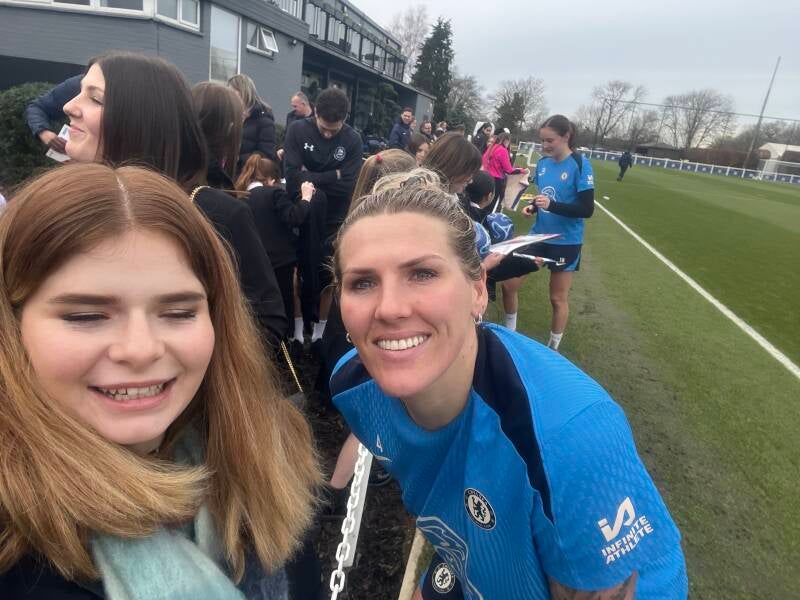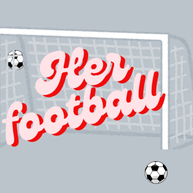

Let's talk mental health with the dramatic fame of some of our most loved players. Due to the increase in fame and fans, it comes with drawbacks.
These footballers are people, not robots. They have feelings, so when they are pushed into the limelight of social media, there comes scrutiny and bullies.
Jill Scott put it perfectly: “Mental health doesn’t care if you’re a footballer. Talking about it isn’t weakness—it’s resilience.”
Millie Bright withdrew from an international camp this month to protect her physical and mental well-being. She spoke on her podcast, Daley Brightness, with her bestie Rachel Daley, saying: "I think mentally and physically I'm at my limits, which is why I'm not at camp. You need to value yourself and your mental health and body and say no. Right now is not the time for you."
Bright has been a big advocate for mental health. She is an ambassador for Young Minds. She previously said this to BBC Sport: "Just kickstart that conversation to say, 'I'm struggling.' You don't have to be a superhero and save yourself. Someone else can do that."
In recent weeks, we saw Mary Earps retire from international duty immediately, which put the media into a tailspin to understand why, with people criticising her decision and her personally. This is an example of the impacts social media can have; we do not know what happened, and we never will, but these footballers are people with feelings; she has announced she is stepping away from social media, likely due to the harassment and hate, she has had inflicted on her. She was part of a squad that won England a Euros and advanced to the World Cup final, yet she's been treated like rubbish.
We have seen many players in recent years come out and speak about their mental health and the impact that social media and newfound fame have had on them as a person.
While some people see footballers as people who have feelings, and while some say they earn so much that we can give them some hate, their lives are so perfect that it is not correct or fair. And let's be real: Women footballers don’t get paid much, especially compared to their male counterparts.
Many players have spoken about the drawbacks of social media and fought back from online trolls. Bunny Shaw is fighting against racism. She was subjected to racist and misogynistic abuse on social media following a Women's Super League match against Arsenal.
Shaw chose to withdraw from the subsequent League Cup semi-final against Arsenal for her mental health. No one should have to stop playing the game they love and stop doing their job because they do not feel safe or welcome in their work environment; the same is true for footballers.
Manchester City condemned the abuse, reported it to the authorities, and supported Shaw during this challenging time.
Demonstrating resilience, Shaw returned to the pitch on February 16, 2025, in a match against Liverpool. She scored twice and celebrated her first goal with a Black Power salute—a powerful gesture symbolising her stand against racism. This act was widely praised by fans and teammates, highlighting her strength and commitment to combating discrimination in football
We must commend our women's footballers
for breaking the decades-old stigma around sports and mental health, especially as women in elite sports have added unique pressures to do with gender bias, pay disparity and body image expectations.
Sam Kerr, Chelsea and Matilda star, spoke about being the bravest thing you can do for yourself and that rest isn't laziness; it's recovery.
While it is fantastic for the women's game to enjoy more visibility, the standards there are upheld, and the scrutiny and pressures to be a role model for the next generation can be.
England captain Leah Williamson spoke profoundly after the Euro 2022 win: “I’ve cried in training. I’ve felt like I wasn’t enough. But I’ve learned that your mind deserves the same care as your body.”
Mental health support structures in women’s football often lag behind those in the men’s game due to resource gaps and lower funding.
The main thing with being a professional athlete is the possibility of injuries. For women, the fear of the dreaded ACL, which can put them out for a year, can impact their lives as it is likely to be the longest they have been away from the sport and become isolating.
Vivianne Miedema ruptured her ACL in the 2022/23 season, just months before the women's World Cup.
She said: “Being injured made me feel lost. I realised how closely my identity was tied to football. Therapy helped me rebuild myself beyond the pitch.”
While at Chelsea, Fran Kirby endured many setbacks due to illness and struggles with pericarditis and depression and spoke openly, saying: “It’s not a weakness to speak up… I’ve been through dark places and became stronger by getting the support I needed.”
Alex Scott, Champions League winner and broadcaster in a BBC documentary “The Truth About Mental Health, said: “I was scared to admit I was struggling. But I realised if I don’t speak up, someone else might stay silent too.”


Add comment
Comments